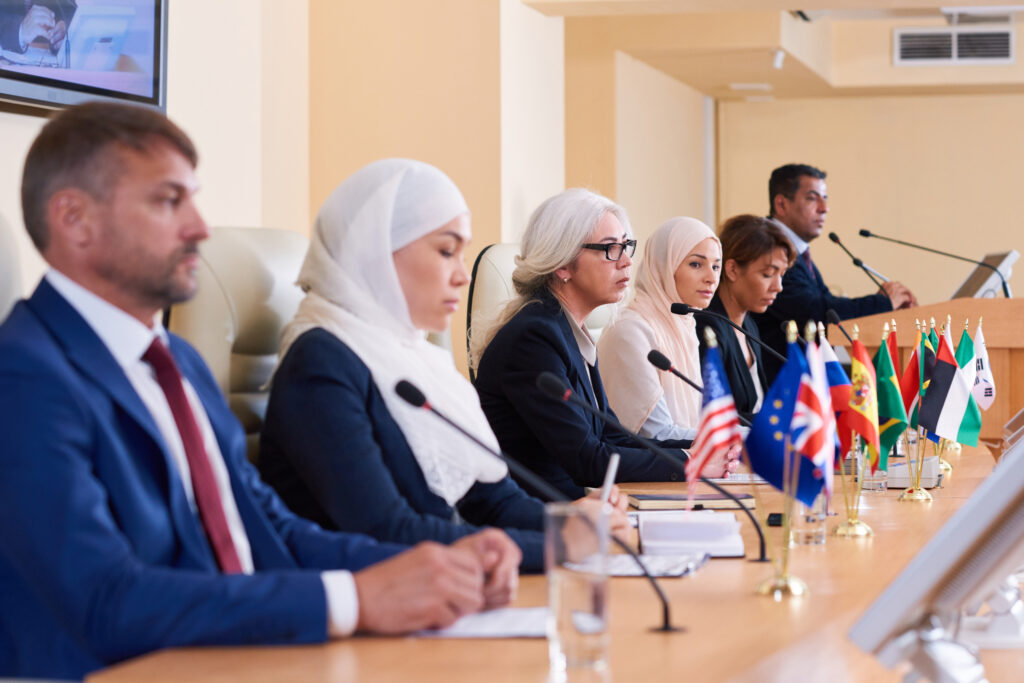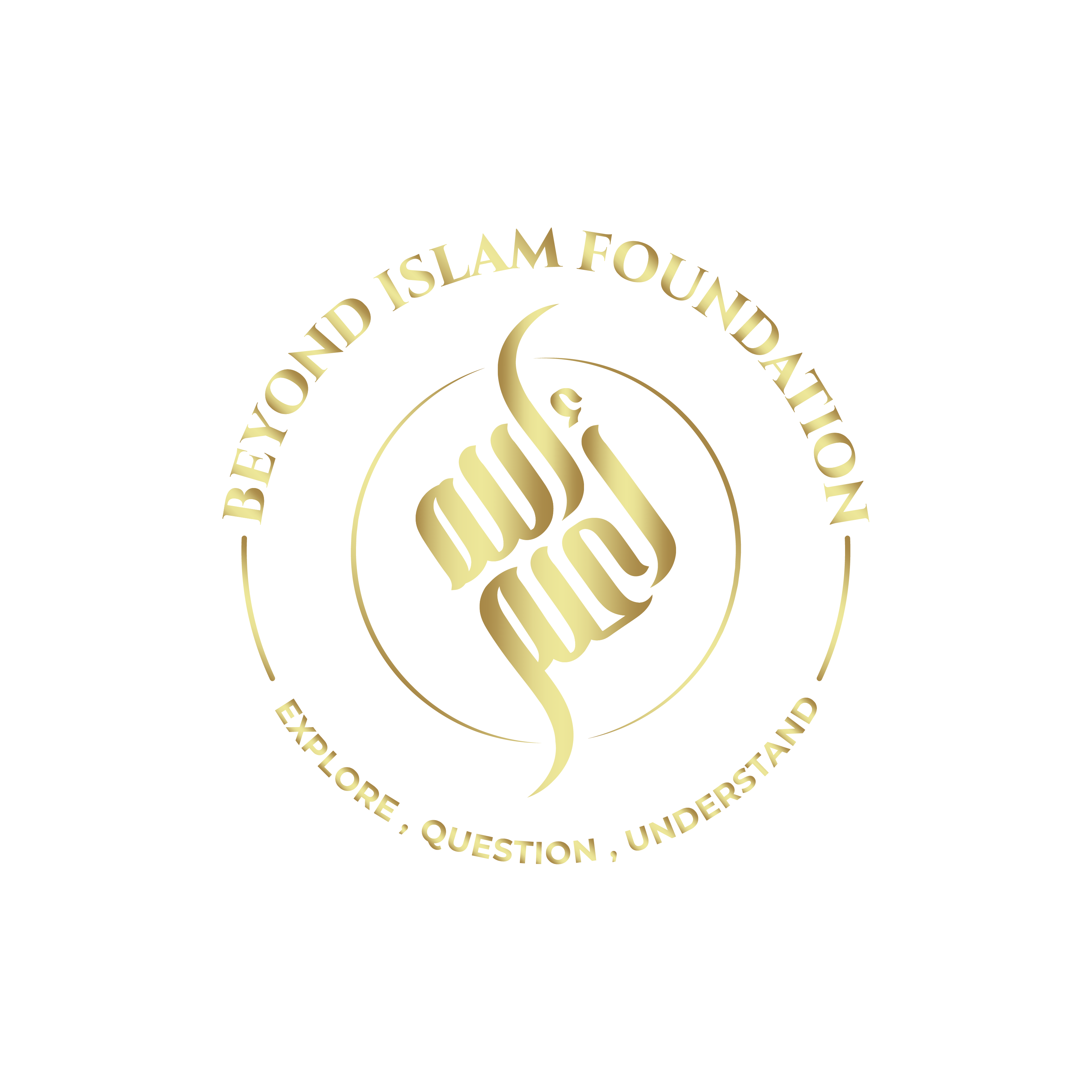Introduction: The Qur’an as a Blueprint for Just Governance
📖 “Indeed, Allah commands you to render trusts to whom they are due and when you judge between people to judge with justice. Excellent is that which Allah instructs you. Indeed, Allah is ever Hearing and Seeing.” (Qur’an 4:58)
Governance in the Qur’an is rooted in justice (Adl), collective decision-making (Shura), and accountability (Mas’ooliyyah). Unlike centralized authoritarian systems that concentrate power or purely democratic structures that can be swayed by majority rule, Qur’anic governance balances individual rights with communal responsibilities. It ensures fairness through ethical leadership, accountability, and consultation (Shura), preventing oppression and fostering societal harmony.
This article explores the fundamental political principles in the Qur’an and how they serve as a framework for a just and accountable governance system.

1. Leadership as a Trust, Not a Privilege
📖 “And We made them leaders guiding by Our command when they were patient and [when] they were certain of Our signs.” (Qur’an 32:24)
📖 “Do not obey the orders of the transgressors who spread corruption in the land and do not reform.” (Qur’an 26:151-152)
Key Observations:
- Leadership is a responsibility entrusted to those who demonstrate patience, wisdom, and righteousness.
- Rulers should serve the people, not exploit them for personal gain.
- Corrupt leadership that causes societal harm is condemned.
The Qur’an rejects authoritarian rule and emphasizes that leaders should be accountable and selected based on merit and integrity, not lineage or wealth. A prime historical example is the leadership of Caliph Umar ibn Abdul Aziz, who was known for his justice, transparency, and commitment to the welfare of his people. His governance reflected Qur’anic principles by prioritizing public consultation, eliminating corruption, and ensuring equitable wealth distribution.
2. Consultation (Shura): The Core of Governance
📖 “And those who have responded to [the needs of] their community, established prayer, and whose affairs are [conducted] through consultation among themselves, and who spend from what We have provided them.” (Qur’an 42:38)
📖 “So pardon them and ask forgiveness for them and consult them in matters. And when you have decided, then rely upon Allah. Indeed, Allah loves those who rely upon Him.” (Qur’an 3:159)
Key Observations:
- Decision-making should be based on collective consultation (Shura).
- The leader must engage with the people and seek their input before making decisions.
- Once a decision is made, reliance on Allah (Tawakkul) reinforces trust in the process.
The Qur’anic model of governance ensures that power is not concentrated in the hands of a few but distributed through consultation and shared responsibility. This consultation process (Shura) involves gathering perspectives from knowledgeable individuals and community representatives, engaging in open discussions, and ensuring that decisions reflect collective wisdom rather than personal interests. Practical implementation includes advisory councils, participatory governance, and mechanisms for holding leaders accountable to the people.
3. Justice (Adl): The Foundation of Governance
📖 “O you who believe! Stand firmly for justice, as witnesses to Allah, even if it be against yourselves, or parents, or relatives. Whether one is rich or poor, Allah is more worthy of both. So do not let personal desires cause you to deviate from justice.” (Qur’an 4:135)
📖 “Indeed, Allah commands justice, excellence, and giving to relatives, and He forbids immorality, wrongdoing, and oppression. He admonishes you so that you may take heed.” (Qur’an 16:90)
Key Observations:
- Justice must be upheld even when it goes against personal interests.
- No one is above the law, regardless of wealth or status.
- Oppression, injustice, and favoritism are strictly forbidden.
Governance based on justice ensures that laws serve all members of society fairly and equitably.
4. Accountability (Mas’ooliyyah): Leaders Are Answerable to the People and to Allah
📖 “And do not conceal testimony, for whoever conceals it—his heart is sinful. And Allah is Knowing of what you do.” (Qur’an 2:283)
📖 “Every soul will be held accountable for what it has earned.” (Qur’an 74:38)
Key Observations:
- Leaders are responsible for their actions and will be held accountable.
- Transparency in governance is necessary to prevent corruption.
- Accountability extends beyond worldly affairs; ultimate justice lies with Allah.
A Qur’anic governance model ensures mechanisms to check power and prevent abuse through transparency and accountability. Historical examples include the practice of Shura during the Rashidun Caliphate, where leaders were held accountable through public consultation and advisory councils. In contemporary times, participatory governance models inspired by these principles promote decentralization and civic engagement to ensure accountability in decision-making.
5. Equality and Rights of the People
📖 “Indeed, We have honored the children of Adam and carried them on land and sea, provided for them of good things, and preferred them over many of those We have created with [definite] preference.” (Qur’an 17:70)
📖 “There is no compulsion in religion. The right path has been made distinct from the wrong path.” (Qur’an 2:256)
Key Observations:
- All human beings are inherently dignified and entitled to fundamental rights.
- Religious and personal freedoms must be respected.
- No system should enforce belief or suppress individual conscience.
A just governance model ensures the protection of rights while allowing people the freedom to practice their faith without coercion.
6. The Qur’anic Alternative to Modern Political Systems
📖 “And We made you a balanced nation so that you may be witnesses over mankind.” (Qur’an 2:143)
Key Observations:
- The Qur’anic model is neither a theocracy nor a secular system—it is a balanced governance structure.
- It integrates ethical leadership, public consultation, justice, and accountability.
- It prevents absolute power by ensuring collective decision-making.
Unlike autocratic rule, which consolidates power in the hands of a few, and modern democracy, which, while providing representation, can be influenced by wealth and populism, the Qur’anic model promotes a just, consultative, and accountable governance system that serves the people equitably. By ensuring ethical leadership and prioritizing public interest over political gain, this model integrates the strengths of democratic participation while mitigating its vulnerabilities.
Conclusion: Implementing Qur’anic Governance in the Modern World
The Qur’an presents a governance system based on justice, consultation, and accountability. It ensures that leadership is a responsibility, not a privilege, and that laws are applied fairly to all members of society.
Are you ready to explore governance based on divine principles? Engage in fair leadership, promote justice in your community, and advocate for transparency and accountability in public affairs. By applying these Qur’anic principles, we can establish governance that truly serves humanity with integrity and fairness.
